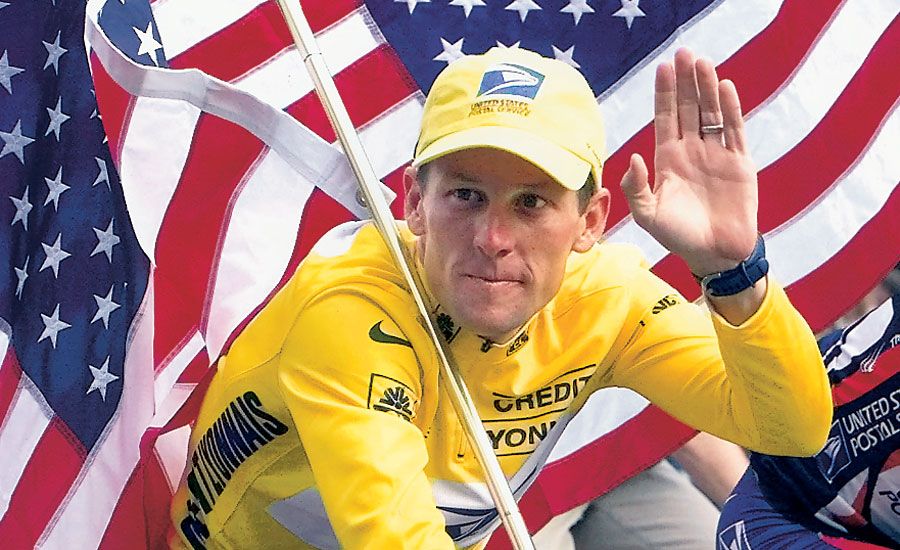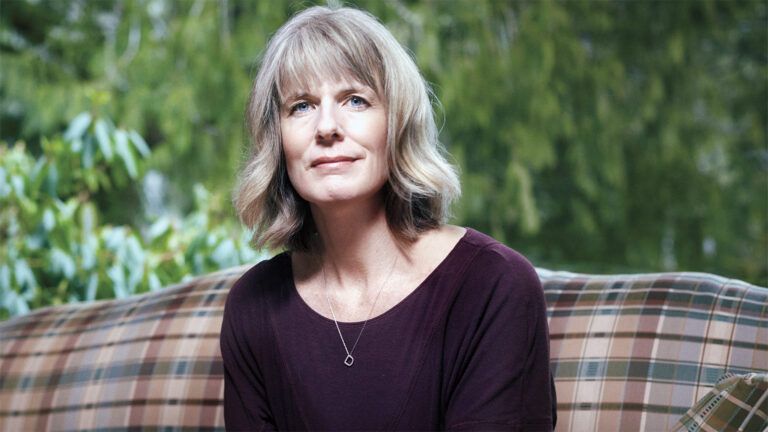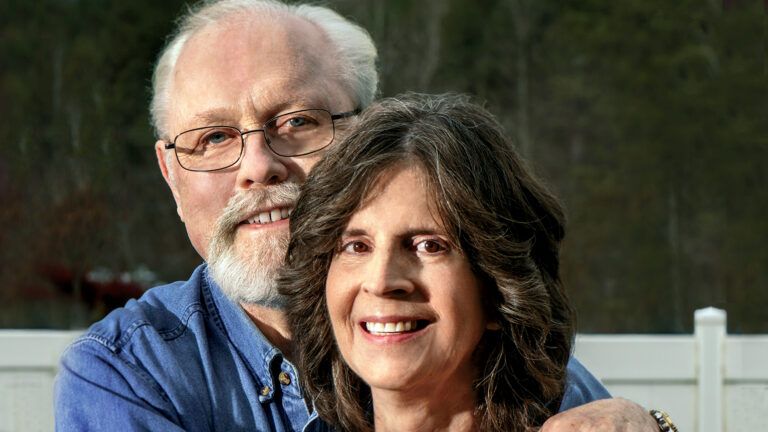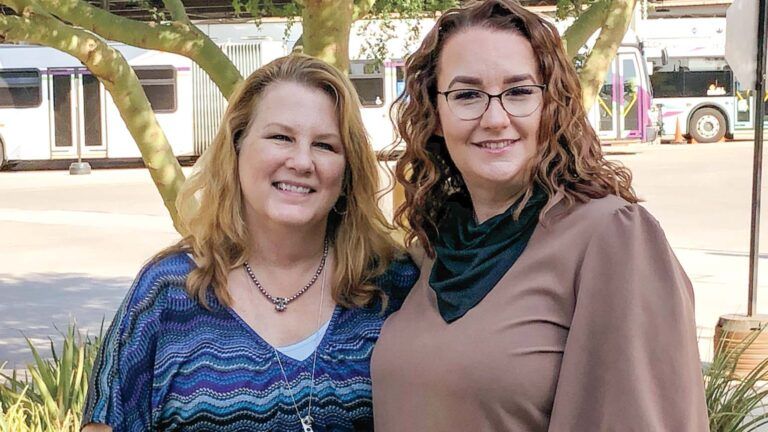When I was 25, I was diagnosed with testicular cancer. I was given a less-than-40-percent chance of surviving, and frankly some of my doctors were just being kind.
My career stopped. The months of chemotherapy were grueling. I thought I’d never be able to get back on a racing bike. There were times I was so sick I couldn’t eat, couldn’t watch TV, couldn’t read my mail.
But when I was sickest from the chemo, I started to beat cancer. In the fall of 1997, I passed the one-year mark of recovery. Finally I made my mind up: I would try to race again.
It was a disaster. I managed to finish only fourteenth in the first professional race of my comeback. I was used to leading, not finishing fourteenth.
Two weeks later I entered the Paris-Nice, an eight-day haul notorious for its raw wintry weather. On the second day I dropped out. This is not how I want to spend my life, freezing and soaked on a bike.
Back in Texas I told my fiancée, Kik, my agent, Bill Stapleton, and my riding buddy, Chris Carmichael, that I was going to retire. When you have lived for so long terrified of dying, you feel like you deserve to spend the rest of your days on vacation. I pretty much became a bum. I golfed. I water-skied. I lay on the sofa and channel-surfed.
One day Kik told me, “You need to stop lying around doing nothing. I love you no matter what. But this isn’t you.”
She was right. I could picture myself bumming around for the rest of my life and I didn’t like it. As the days wore on, I began to waver on retirement. Bill persuaded me to commit to one last race, the U.S. Pro Championships, that May. Chris insisted that I needed an eight- to ten-day intensive training camp to get back in shape.
“Let’s get out of town,” he said. “You can’t focus here in Austin. There are too many distractions.”
We headed for Boone, North Carolina, high in the Appalachians. I had won the Tour Du Pont twice there, and I had spent many afternoons cycling on its tallest peak, Beech Mountain. It was arduous but beautiful country.
Spring had just begun moving up into the hills, creating a constant fog and drizzle that seemed to muffle the piney woods. We rode winding back roads, only some of which were paved and mapped. We cycled over gravel and beds of pine needles, and under hanging boughs. The cold seared my lungs, and with every breath I blew out white frost, but I didn’t mind. This time it felt good.
Toward the end of that week we decided to tackle Beech Mountain. There was a time when I owned that mountain. It was a strenuous 5,000-foot climb with a snowcapped summit, and it had been the crucial stage in my two Tour Du Pont victories. I remembered laboring up the mountainside with crowds lined along the route—how they had painted my name across the road: Go Armstrong.
We set out on a cold, rainy day planning to ride a 100-mile loop before we undertook the big finishing ascent of Beech Mountain. We rode through a steady rain, and by the time we got to the foot of the mountain, I was drenched.
I lifted myself up out of the seat and propelled the bike up the incline. I hammered down on the pedals, working hard, and felt a small bloom of sweat and satisfaction, a heat under my skin. Chris was behind me in the follow car. He rolled down the window, yelling, “Go, go, go!”
The ascent triggered something in me. As I rode upward I reflected on my life—my childhood, my early races, my illness and how it had changed me. My mother was 17 when she had me, and she separated from my father when I was two. No one thought we would amount to anything, but Mom believed differently, and she raised me with an unbending rule: “Make every obstacle an opportunity.”
In Plano, Texas, where I grew up, if you weren’t a football player you didn’t get noticed, and if you weren’t in the right social circles, you didn’t get noticed either.
Well, my mother was a secretary and I wanted to get some attention somehow, so I tried football. But when it came to anything that involved hand-eye coordination, I was no good. I was determined to find a sport I could succeed at. First it was running, then swimming, then cycling.
Other kids were hanging out at the country club while I biked for miles after school. I had a huge chip on my shoulder, and I found that it could become the stuff of competitive energy. “Turn every negative into a positive,” Mom would say.
When Mom got home from work, we sat down to dinner together and talked. Sometimes she talked about how frustrated she was at work, where she felt she was underestimated because she was a secretary.
“Why don’t you quit?” I asked.
“Son, you never quit,” she said.
I started to make a name for myself in bike races and my mother became my organizer and my motivator. “If you can’t give one hundred and ten percent, you won’t make it,” she told me. She always found a way to get me the latest bike I wanted, or the accessories that I needed. In fact, she still has all of my discarded gears and pedals, because they were so expensive she couldn’t bear to get rid of them.
Mom was with me when I won the World Championships in Oslo, Norway, in 1993. I was 21. I pumped my fists in the air, blew kisses and bowed to the crowd. After I dismounted, I found Mom, and we stood there in the rain, hugging. “We did it! We did it!” I said.
In the midst of the post-race celebration, a royal escort arrived to inform me that King Harald of Norway wanted to congratulate me. “Come on, Mom. Let’s go meet the king.” We began to move through the security checkpoints. Then a guard stopped us. “She’ll have to stay here,” the escort said. “The king will greet you alone.”
“I don’t check my mother at the door,” I replied. I had no intention of going anywhere without her. They relented and together we met the king. It seemed then that the tough times were over. No more big obstacles to overcome. Then came cancer.
I was diagnosed with testicular cancer at stage three, the most advanced, and in the space of a few days I learned it had spread to my lungs and brain. I chose to have surgery on the lesions in my brain. When I came out of the operation, my head was wrapped in gauze and bandages. My senses seemed wrapped up, too, a result of the anesthesia and the IV tubes twining all over me. I was exhausted, drained to the center of my being.
“Can I see my mom?” I asked.
She came in quietly and held my hand.
“I love you,” I said to my mother. “I love my life, and you gave it to me, and I owe you so much for that.”
“Keep fighting for it, son.”
Following the operation, while I was going through chemo, my driver’s license expired. I dragged myself down to the Department of Motor Vehicles and stood in front of the camera. I was completely bald, with no eyelashes or eyebrows, and my skin was the color of a pigeon’s underbelly. But I looked into the lens and smiled. I want this picture so that when I get better I will never forget how sick I was.
A year and a half later I could look at my driver’s license and say I had survived cancer. But now what? As I climbed Beech Mountain, I asked myself, Do I still have what it takes to race?
Then I saw an eerie sight: The road still had my name painted on it. My wheels spun over the washed-out yellow and white lettering. It said, faintly, Go, Armstrong! Lance Armstrong, the one who turns obstacles into opportunities. Son, you never quit.
All at once I saw my life as a whole and understood its pattern. It was simply this: I was meant for a long, hard climb.
I approached the summit. Behind me, Chris could surely see there’d been a change in me. I reached the top of the mountain and cruised to a halt. Chris stopped the car and got out. We didn’t talk about what had just happened. Chris just looked at me and said, “I’ll put your bike on top of the car.”
“No,” I said. “Give me my rain jacket. I’m riding back.”
I was a bike racer again.
I passed the rest of the trip in a state of near-reverence for those beautiful, soulful mountains. I rode with a pure love of the bike, a pure love of life itself. As I rode on, Boone began to feel like the Holy Land to me, a place I’d come to as if on a pilgrimage.
I didn’t just jump back into racing and win. There were a lot of ups and downs, but this time I didn’t let the lows get to me. I enjoyed every day on my bike. I even took the bike to my wedding when Kik and I were married. In 1999, I went on to win the Tour de France, but my victory over cancer has meant the most to me because of how it helped me grow as a human being.
Still, when I was presented the Tour trophy at the victory ceremony, I was ecstatic. I leaped down and ran into the stands to embrace my wife. Photographers surrounded me, and I looked for Mom. Finally the crowd opened and I saw her and grabbed her in a hug. The press swarmed around her too, and someone asked her if she thought my victory was against the odds.
“Lance’s whole life has been against the odds,” she said. I’d followed her advice every step of the way. Turn every obstacle into an opportunity. So it was an uphill climb. I knew now that no matter what, I’d keep going.
Did you enjoy this story? Subscribe to Guideposts magazine.






